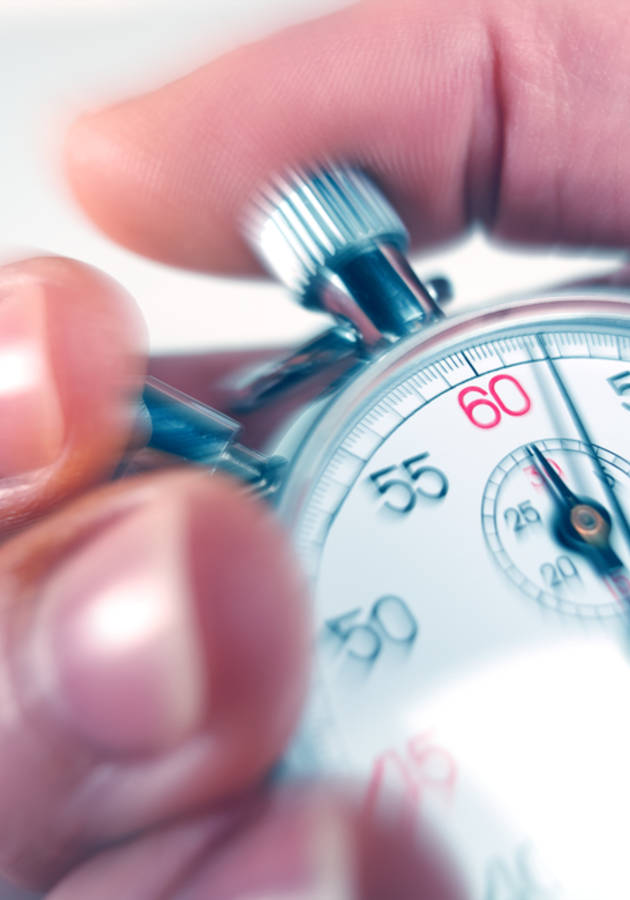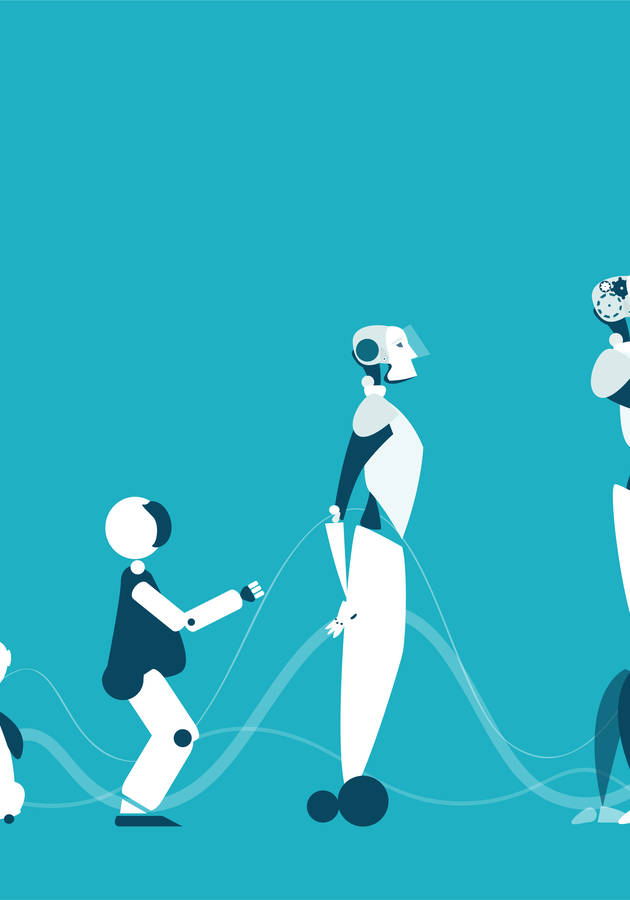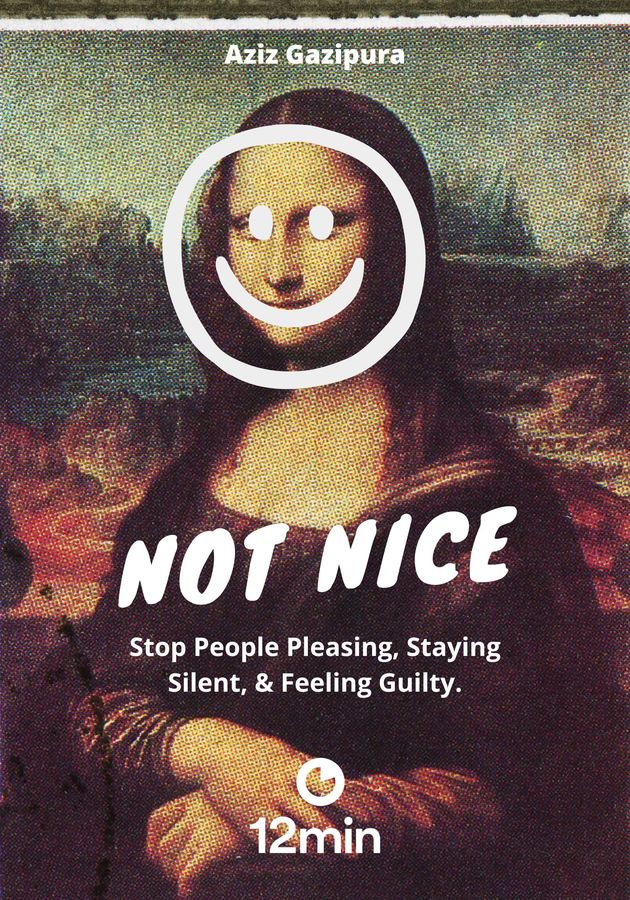We don’t need to tell you that this is a wonderful time to be alive.
No matter what your goals are, there have never been more opportunities, more possibilities for you to achieve them. We are practically “drowning in options”!
Unexpectedly, however, this has become a problem in itself: there are just so many things you can do nowadays that you are incapable of choosing.
Paralyzed by analysis (yes, that’s an actual thing), you end up choosing either nothing or everything, i.e., you are either procrastinating or are overwhelmed with too much to do and too little time for it.
And it doesn’t end there: like the waves of the ocean, new tasks and responsibilities just keep rolling in, and you are always behind on some—or even most—of them!
“For this reason,” writes Brian Tracy, one of the most prolific and celebrated self-help authors of our time, “your ability to select your most important task at each moment, and then to get started on that task and to get it done both quickly and well, will probably have more of an impact on your success than any other quality or skill you can develop.”
Fortunately, that’s what Eat That Frog! Is all about!
As suggested by its subtitle, the book is a sort of a compendium of 21 habits you should adopt if you want to stop procrastinating and start doing more things in less time. In our summary, we go over each one of these habits.
But first—about that title.
The truth about frogs
A century and a half ago, America’s greatest writer, Mark Twain, said that if the first thing you must do each morning is eating a live frog, you can go through the rest of your day with the satisfaction of knowing that that is probably the worst thing that is going to happen to you all day long.
Brian Tracy uses this witty observation by Twain as the comprehensive metaphor which holds all of his bits of advice together.
“Your ‘frog,’” he writes, “is your biggest, most important task, the one you are most likely to procrastinate on if you don't do something about it. It is also the one task that can have the greatest positive impact on your life and results at the moment.”
To make things even clearer, Tracy adds two rules to the game of frog-eating:
#1. If you have to eat two frogs, eat the ugliest one first; and
#2. If you have to eat a live frog at all, it doesn't pay to sit and look at it for very long.
It’s evident from the outset what these two rules actually mean when translated into the language of the real world of obligations, assignments, and duties, but still:
#1. If you have more than one important task before you, resist the temptation to start with the easier task, and instead start with the hardest and the biggest one first.
#2. If you must do something, the smartest thing you can do is to do it before you do anything else—don’t overthink it, don’t let it take up too much of your time, and don’t postpone it. Take action immediately!
Habits, addictions, and shortcuts
Easier said than done, right?
It’s not like you didn’t know that you should start working on whatever it is you’re supposed to be working as soon as possible. Knowing this was never the problem; the problem was always how to start working, how not to procrastinate.
If you’re looking for some innovative ways to achieve this—look elsewhere (though we should tell you right away we doubt you’ll ever find something worthy of your time). Brian Tracy’s instructions are the oldest in the book: develop the right kind of habits.
“The habit of setting priorities, overcoming procrastination, and getting on with your most important task is a mental and physical skill,” he writes. The good news is that, as such, this habit is “learnable through practice and repetition, over and over again, until it locks into your subconscious mind and becomes a permanent part of your behavior.”
And you know how things go: once something becomes a habit, it becomes both automatic and easy to do.
You need three key qualities to develop any habit you like. Tracy calls them the three Ds of new habit formation:
#1. Make a decision to develop the habit;
#2. Discipline yourself to practice the principles attached to this habit, over and over again, until they become automatic; and
#3. Back everything you do with determination until the habit becomes a permanent part of your personality.
The best thing about habits—and one of the secrets of success—is that almost all habits, in time, become positive addictions.
Just think how much better your life would be if you start getting from a productive habit the same amount of dopamine and endorphins you get from smoking or watching TV! This is not only possible, but inevitable: changing your habits is all you need to do to achieve it.
Think of your mind as a sort of a muscle which grows stronger and more capable with use. They don’t say “practice makes perfect” for no reason. People who take shortcuts never make it—it’s not like you can become a bodybuilder if you don’t go to the gym.
All of the 21 habits
Now that we’ve covered the basics, it’s time to move on to the habits, isn’t it? Here they are, all 21 of them, summed up for you as concisely and as clearly as possible!
1. Set the table
“One of the very worst uses of time,” writes Tracy, “is to do something very well that need not be done at all.”
That’s why setting your goals is the very first habit you need to develop. “Decide exactly what you want,” says Tracy. “Clarity is essential.”
And it is a fact that our thoughts are never as clear as when put on paper. So, write out your objectives and goals before you start doing anything!
2. Plan every day in advance
“Every minute you spend in planning can save you five or ten minutes in execution,” says Tracy. Consequently, one of the most time-saving things you can do is planning every day in advance. Use four kinds of lists to do this:
Master list: put here everything you can think of that you want to do sometime in the future.
Monthly list: make one at the end of every month for the things you want to complete during the following month.
Weekly list: make one on Sunday night for the week after.
Daily list: make one every night to plan ahead for the following day.
3. Apply the 80/20 Rule to everything
The 80/20 Rule—also known as the Pareto principle—says that 20% of your activities will always account for 80% of your results, and vice versa.
Obviously, if you want to achieve maximum results, you should find a way to focus your efforts on the 20%.
You know, the frogs, or, better yet, the ugliest frog.
4. Consider the consequences
Speaking of frogs…
The best way to find out which tasks are your priorities is by framing your short-term decision-making inside long-term thinking.
Ask yourself what you want to be in ten years. Now that you have the answer, ask yourself what tasks you should do now if you want to grow into the best version of yourself in a decade.
Focus on these tasks and leave everything else aside. Or as Tracy says: “Do first things first and second things not at all.”
5. Practice creative procrastination
The difference between high performers and low performers is simple: the former procrastinate on things which are not priorities.
This is the essence of creative procrastination: there are so many things you can and should do, so it is your job to deliberately procrastinate on tasks that are of low value to you.
That way, you’ll have more time for the things that really make a difference.
6. Use the ABCDE Method continually
When writing the lists we mentioned in #2, you should use the ABCDE method of organization. It’s quite simple, really: just put a letter next to your tasks, and order them from the most important (A) to the least important (E).
If you have more than one A task, use numbers to prioritize accordingly: A-1, A-2, etc. However, don’t move to the B-tasks until the A-tasks are completed: that’s a sure way toward frustration and regret.
7. Focus on key result areas
One of the greatest questions you can ever ask yourself: “What one skill, if I developed and did it in an excellent fashion, would have the greatest positive impact on my career?”
The answer gives you the are you need to focus on, the sphere you need to work on all day long if you want to make something out of your life.
8. The Law of Three
Identify three things you do in your work that account for nine-tenths of your contribution, and focus on getting them done before anything else.
Because that’s the only way one can get to have more time for his/her family and personal life.
9. Prepare thoroughly before you begin
“Have everything you need at hand before you start,” says Tracy. “Assemble all the papers, information, tools, work materials, and numbers you might require so that you can get started and keep going.”
10. Take it one oil barrel at a time
If you travel by car throughout the Sahara Desert, you’ll probably notice something weird : there are oil barrels placed about 5 kilometers apart from each other almost everywhere you go.
The French put them there, and they put them there on purpose. Namely, because of the long trip and the endless amounts of sand, the oil barrels should help one focus. Instead of thinking about the length of their monotonous journey, drivers could now think about reaching the next oil barrel.
Do the same when it comes to your tasks: chunk them up. And instead of thinking about the huge task in front of you (say, writing a novel), think of the single action you can take today (say, writing three paragraphs).
11. Upgrade your key skills
You know what Pope says: “those move easiest who have learned to dance.”
Apply this when it comes to any of your skills: the more knowledgeable you become at your key tasks, the sooner and effortless you will be able to get them done.
Walking a mile is a piece of cake if you’ve just trained for a marathon, right?
12. Leverage your special talents
“The eagle never lost so much time,” wrote William Blake in the 18th century, “as when he submitted to learn of the crow.”
The point: everyone is a unique being with special talents. Focus on the ones you are best at, and the ones that make you the happiest.
No matter what everybody says.
13. Identify your key constraints
We are all constrained by one thing or another.
Whether it is something internal (such as our habits or our skills) or something external (such as the government or the family), your job is to determine these constraints and focus on soothing them before they stifle your progress to a halt.
14. Put the pressure on yourself
Whether we like to admit it or not, we all work better under pressure. So, put pressure on yourself: even if artificial, pressure is motivating.
Here’s a great hack: imagine that you have to leave town for a month and that you have to get all your major tasks completed before you left. In time, the imaginary deadline will start feeling like a real deadline, and hence , you’ll get some real job done.
15. Maximize your personal power
There are early birds, and there are night owls. There are people capable of performing at 4 AM, and some who do their best work around lunchtime.
Identify your periods of highest mental and physical energy, and structure your days around these times. Get lots of rest in the meantime—so you can perform at your best when it matters.
16. Motivate yourself into action
According to many studies, optimists live better and longer than pessimists.
So, be an optimist! Be your own cheerleader! Rather than the problems, focus on the solutions. Look for the good in every situation.
17. Get out of the technological time sinks
Mobile phones and computers, Google and Facebook—all of them were meant to free up some of our time so that we can do important things.
Instead, we became slaves to them.
Change that immediately. Start turning off your devices from time to time. Remember: they don’t control you—you control them.
18. Slice and dice the task
When you are faced with complex, multitask jobs, use the salami or the Swiss cheese method to slice and dice the tasks.
A variation of #10, the salami method works quite simple: just lay out your complex job into step-by-step details, and take one slice at a time.
The Swiss cheese method is similar but takes a different perspective. Instead of breaking down the job in question into bite-sized pieces, with the Swiss cheese method, you cut up your time into small intervals (say, 10 minutes), and use them to put holes in the task, regardless of how big.
19. Create large chunks of time
What do you do when you have an important meeting? Well, for one, you go to the meeting, no matter how bad or disappointed you feel.
Use this to your own benefit, Tracy suggests: “Make work appointments with yourself and then discipline yourself to keep them. Set aside thirty-, sixty- and ninety-minute time segments that you use to work on and complete important tasks.”
20. Develop a sense of urgency
The difference between unproductive and productive people is that the first ones sit around and talk about what they will do in the future, while the second ones—just do it in the present.
The lesson is quite straightforward: if you want to get things done, you need to become a person of action. And the best way to become a person of action is by developing a sense of urgency.
21. Single handle every task
Multitasking is a myth. Not only it doesn’t help, it actually has a detrimental effect on both you and your efficiency.
So, single handle every task. Set clear priorities, start working on your most important task first, and then don’t stop working on it until it is 100 percent complete.
As Tracy says, this is the real key to high performance and maximum personal productivity.
Final Notes
Eat That Frog! is a fairly short book, but it lists so many good pieces of advice that it can have a profound effect on your work habits and, understandably, your life as well.
Written in Tracy’s famously effortless, inspiring and actionable style, even after so many years and titles, this is still his best book.
So, if you want to learn how one of the most celebrated self-help authors of the modern era thinks and writes, Eat That Frog! is the best place to start.
12min Tip
Plan your day the night before. Use lists and the ABCDE method to do this. Meaning: catalog all of the tasks you want to do during any day and prioritize them from the most crucial to the least worthy. Start with the most important: eat the ugliest frog first!





























